Serving 212 students in grades Prekindergarten-12, Dale Cassens Education Complex ranks in the bottom 50% of all schools in Florida for overall test scores (math proficiency is bottom 50%, and reading proficiency is bottom 50%).
The percentage of students achieving proficiency in math is ≤20% (which is lower than the Florida state average of 59%). The percentage of students achieving proficiency in reading/language arts is 21-39% (which is lower than the Florida state average of 56%).
The student:teacher ratio of 9:1 is lower than the Florida state level of 17:1.
Minority enrollment is 91% of the student body (majority Black), which is higher than the Florida state average of 65% (majority Hispanic and Black).
Quick Stats (2025)
- School Type: Alternative school
- Grades: Prekindergarten-12
- Enrollment: 212 students
- Student:Teacher Ratio: 9:1
- Minority Enrollment: 91%
- Graduation Rate: ≤20% (Btm 50% in FL)
- Math Proficiency: ≤20%
- Reading Proficiency: 21-39% (Top 1%)
- Source: National Center for Education Statistics (NCES), FL Dept. of Education
Top Rankings
Dale Cassens Education Complex ranks among the top 20% of public schools in Florida for:
Category
Attribute
Percent Eligible For Free Lunch
Community Size
Student Attention
School Overview
Dale Cassens Education Complex's student population of 212 students has declined by 14% over five school years.
The teacher population of 23 teachers has declined by 20% over five school years.
School Type
Grades Offered
Grades Prekindergarten-12
Total Students
212 students
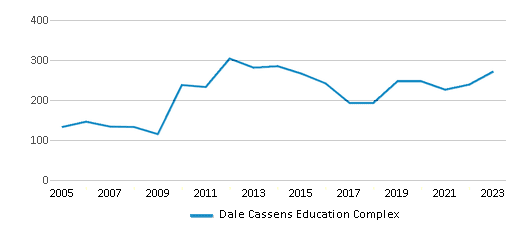
Gender %
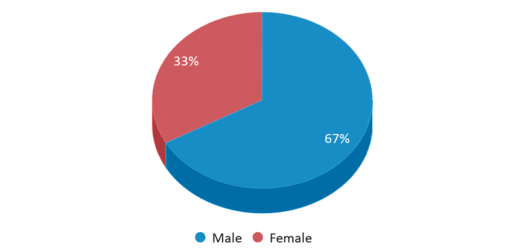
Total Classroom Teachers
23 teachers
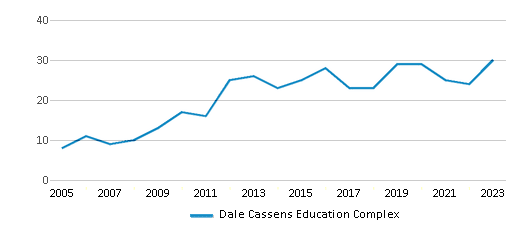
Students by Grade
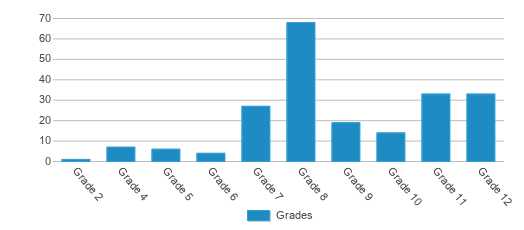
School Calendar
School Rankings
The diversity score of Dale Cassens Education Complex is 0.54, which is less than the diversity score at state average of 0.70. The school's diversity has stayed relatively flat over five school years.
Math Test Scores (% Proficient)
(18-19)≤20%
59%
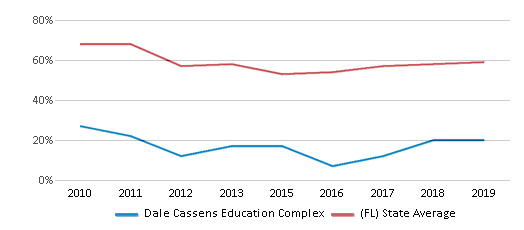
Reading/Language Arts Test Scores (% Proficient)
(18-19)21-39%
56%
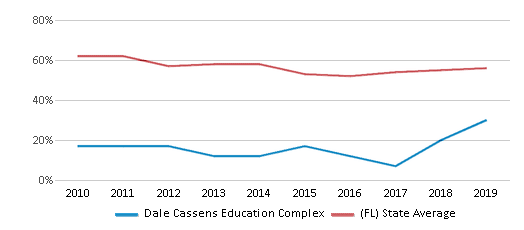
Student : Teacher Ratio
9:1
17:1
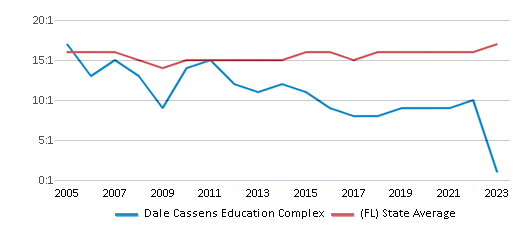
American Indian
1%
n/a
Asian
n/a
3%
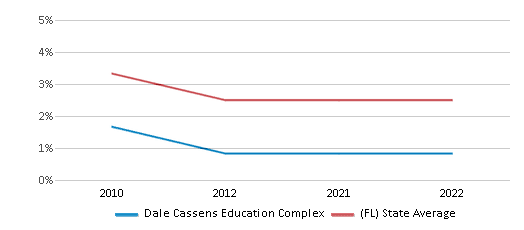
Hispanic
20%
37%
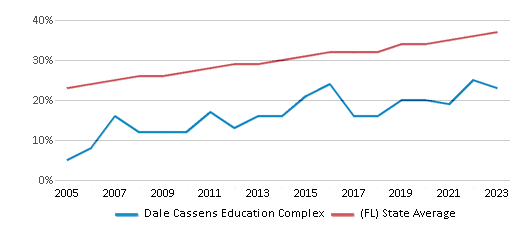
Black
64%
21%
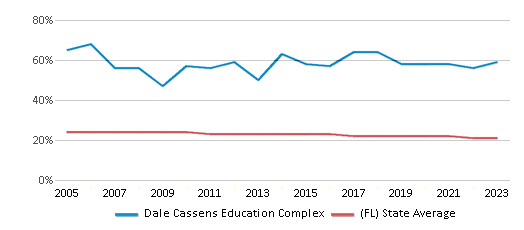
White
9%
35%
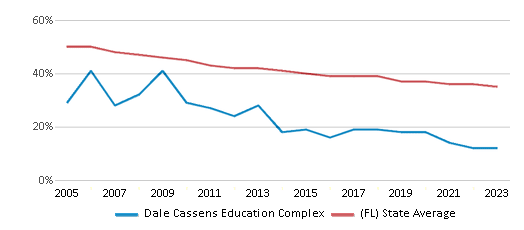
Hawaiian
n/a
n/a
Two or more races
6%
4%
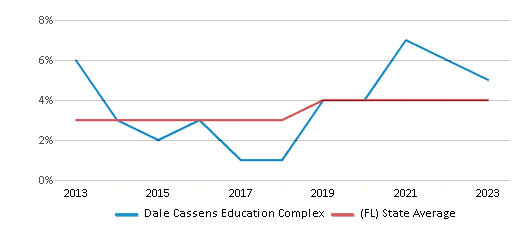
All Ethnic Groups
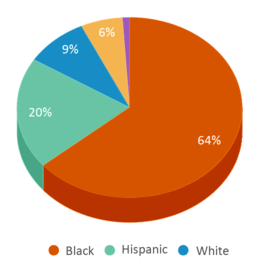
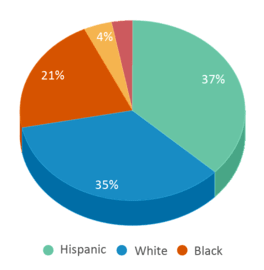
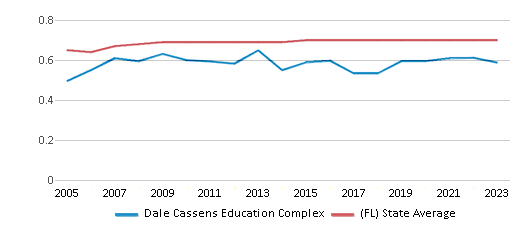
Graduation Rate
≤20%
87%
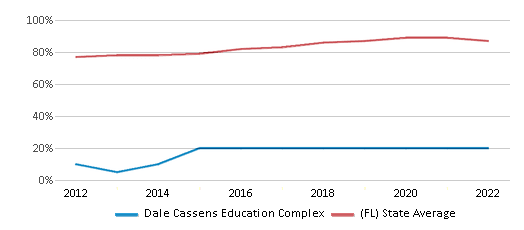
Participates in the National School Lunch Program (NSLP)
Yes
Eligible for Free Lunch
63%
47%
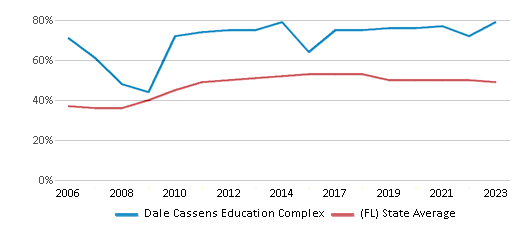
Eligible for Reduced Lunch
4%
4%
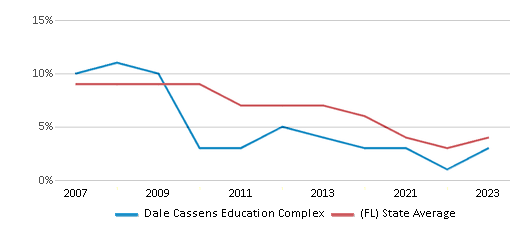
School Statewide Testing
School District Name
Source: National Center for Education Statistics (NCES), FL Dept. of Education
Profile last updated: 02/09/2025
Frequently Asked Questions
What schools are Dale Cassens Education Complex often compared to?
Dale Cassens Education Complexis often viewed alongside schools like Data House by visitors of our site.
What percent of students have achieved state testing proficiency in math and reading?
≤20% of students have achieved math proficiency (compared to the 59% FL state average), while 21-39% of students have achieved reading proficiency (compared to the 56% FL state average).
What is the graduation rate of Dale Cassens Education Complex?
The graduation rate of Dale Cassens Education Complex is 20%, which is lower than the Florida state average of 87%.
How many students attend Dale Cassens Education Complex?
212 students attend Dale Cassens Education Complex.
What is the racial composition of the student body?
64% of Dale Cassens Education Complex students are Black, 20% of students are Hispanic, 9% of students are White, 6% of students are Two or more races, and 1% of students are American Indian.
What is the student:teacher ratio of Dale Cassens Education Complex?
Dale Cassens Education Complex has a student ration of 9:1, which is lower than the Florida state average of 17:1.
What grades does Dale Cassens Education Complex offer ?
Dale Cassens Education Complex offers enrollment in grades Prekindergarten-12
What school district is Dale Cassens Education Complex part of?
Dale Cassens Education Complex is part of St. Lucie School District.
School Reviews
1 3/23/2020
For teachers and others hoping to work with students who have many - academic, behavioral, psychological - difficulties, working at Dale Cassens Education Complex can be a very depressing experience. First, it is a very top-down institution. No matter your background, education, or experience, your ideas will be rejected. There is little to no cohesion among the staff who have good reason to be distrustful. Workplace bullying is the norm and perpetrators can be found at all levels. Attempts to learn what is necessary to better your work performance will be ignored if you ask for help. There are many ''gatekeepers'' who enjoy keeping you in your place. If you face problems, your attempts to solve them will likely be ignored or dismissed. If you cause too many problems by asking for assistance or by notifying administrators of problems needing to be addressed, expect to be fired and black-balled. No matter how hard you work and how much you care, don't expect your work to be valued. Also, be warned that at any time you may face loud and angry public-shaming. This can happen at any time, including at a staff meeting or in your classroom with students. They call it being hardened.
5 8/17/2016
I will be visiting school tomorrow for the 1st time to register my son for the 11th grade, looking forward to meeting staff , and having a great year
Review Dale Cassens Education Complex. Reviews should be a few sentences in length. Please include any comments on:
- Quality of academic programs, teachers, and facilities
- Availability of music, art, sports and other extracurricular activities
Recent Articles

What Is A Charter School?
Explore the world of charter schools in this comprehensive guide. Learn about their history, how they operate, and the pros and cons of this educational innovation. Discover key facts about charter schools, including admission policies, demographics, and funding, as well as what to look for when considering a charter school for your child.

10 Reasons Why High School Sports Benefit Students
Discover the 10 compelling reasons why high school sports are beneficial for students. This comprehensive article explores how athletics enhance academic performance, foster personal growth, and develop crucial life skills. From improved fitness and time management to leadership development and community representation, learn why participating in high school sports can be a game-changer for students' overall success and well-being.

February 05, 2025
Understanding the U.S. Department of Education: Structure, Impact, and EvolutionWe explore how the Department of Education shapes American education, from its cabinet-level leadership to its impact on millions of students, written for general audiences seeking clarity on this vital institution.






